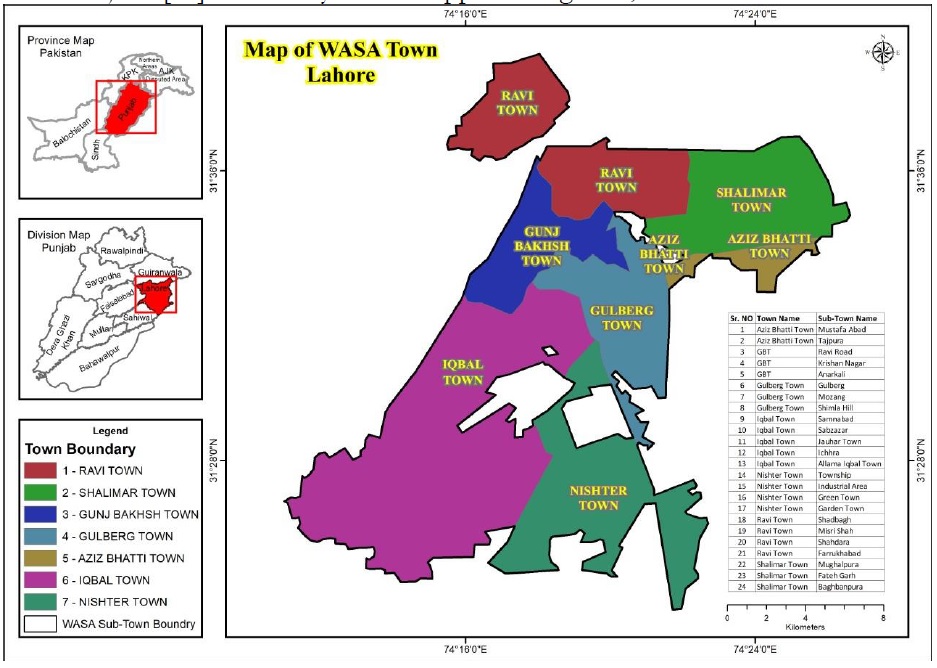Critical Study of Groundwater Quality of Metropolitan Lahore Using Geo-Spatial Techniques
Keywords:
pH, Turbidity, Chloride, Water Quality, GIS.Abstract
Lahore is famous for its rapid urban growth providing bread and butter to around 11 million population. Availability of clean drinking water to general public is the responsibility of the state. Pakistan ranks at 80 in terms of providing standard drinking water to people. This research is based on monitoring the temporal changes in water quality of various towns of Lahore for the years 2009-2019. Various water quality parameters e.g., pH, alkalinity, calcium, magnesium, hardness, turbidity, chloride, Total Dissolved Solid (TDS), Electric Conductivity (EC) and hardness were examined, and the spatial trend was mapped. Primary data about these parameters was collected from water and sanitation authority Lahore and the interpolation was applied to examine trend in variations of various levels of these parameters for a period from 2009 to 2019. The results show that pH, alkalinity, hardness and turbidity levels in most of towns were below the acceptable limit in comparison to World Health Organization permissible standards. We found that industrial boom, poor sanitation, seepage of sewerage water and its addition in ground water has declined the overall quality of drinking water. Local government must take blunt steps to improve the quality of drinking water otherwise the overall situation may lead to become drastic in near future.


















